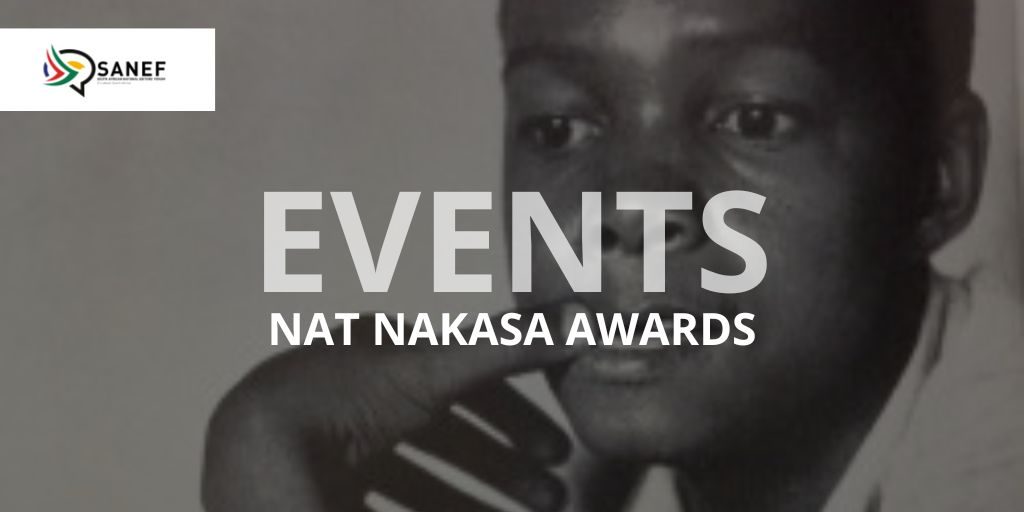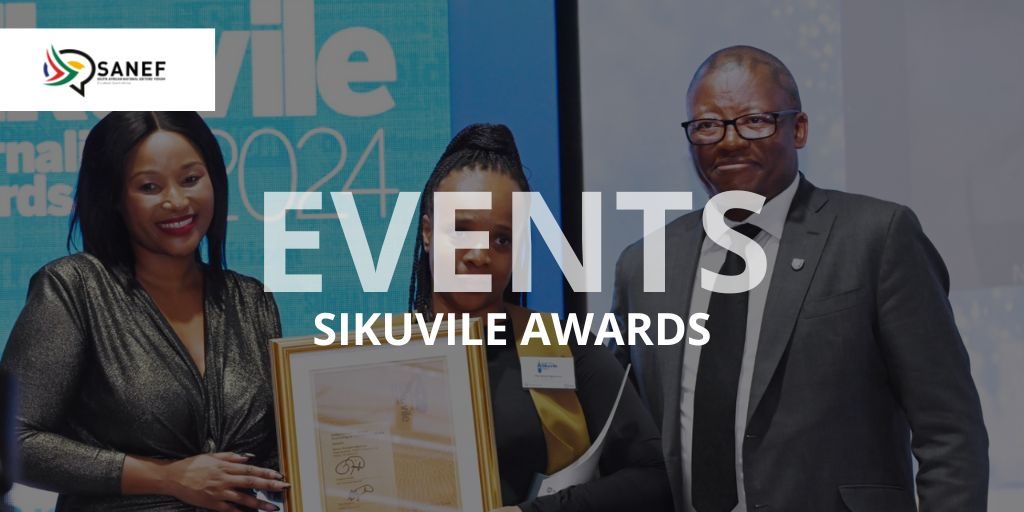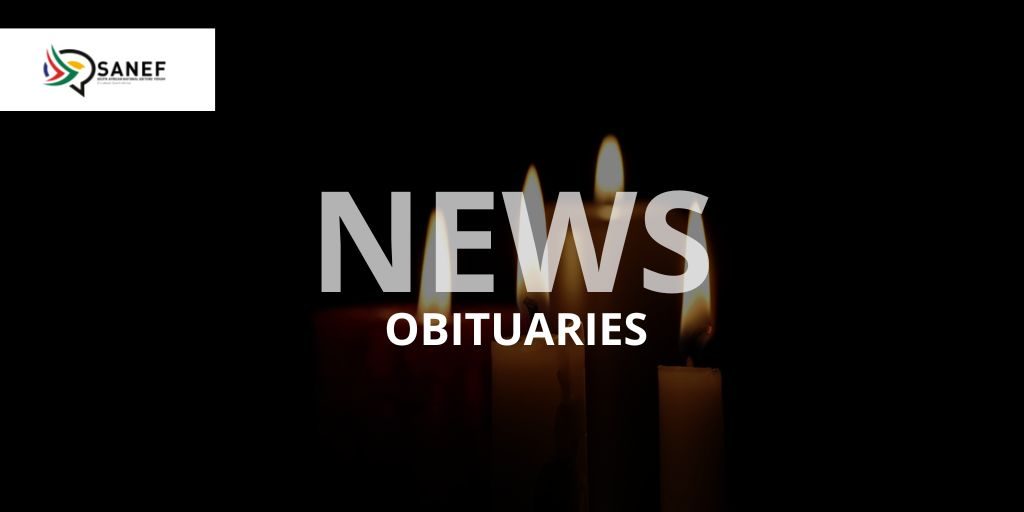Speech by Retired Deputy Chief Justice Dikgang Moseneke
Introduction
Good evening ladies and gentlemen, esteemed guests and fellow patriots. I owe my presence here to Mathatha Tsedu, your executive director. He used all imaginable struggle sentiments and memories from past trenches against apartheid to get me out of retirement to this South African National Editors’ Forum (SANEF) awards dinner. It was not necessary.
First, because I am grateful to be not amongst lawyers and judges, but rather amongst South Africa’s thought leaders in media (print, broadcast, and internet) and trainers constituted as the forum famously known as SANEF. Since its inception in 1996, SANEF has stood for media freedom and transformation and for other significant things I care for. Second, it was not necessary to plead with me to be here tonight because, in the 40 years of public life, principally as an activist lawyer and later as a judge, I have thrived under the peering and piercing eyes of media practitioners. Perhaps it is not entirely inapposite to come at the end of my career and say thank you and goodbye to a chattering class that has so kindly documented so much of my public career.
The third reason why I would have accepted this invite is that this evening is so closely connected to Nat Nakasa. The tale of Nat Nakasa is as harrowing as it is tragic. He tried to escape the scorn of apartheid and the silence it sought to impose on him only to die in 1965 – young, exiled, heart-broken and perhaps even more alienated from himself and from his newly-found world. What saves his tragic tale is the short but dynamic career he lit up by his journalistic courage and integrity. It is therefore an honour to be here and to pay respect to Nat Nakasa and indeed to other media practitioners who are similarly situated at home, on the rest of the African continent and abroad. Media practitioners, much like judges, easily and quickly earn the wrath of ruling elites around the world.
On a lighter note, Mathatha, I would have agreed to be here in any case, to meet up with SANEF’s Secretary-General. I have known Katy Katopodis, since she was a young activist university student. She studied and later worked in media with my daughter, Duduzile. Both have since grown to be enterprising women and are currently running a competition on who may produce more grandchildren for their adoring parents. My daughter has three and Kate may be lagging behind.
Excited as I am about being here this evening, I don’t think I have any new or thunderous insights that travel beyond your own expertise. Let me underline the point in this way.
On Thursday, 19 September 2002, shy of 14 years ago, Henry Jeffreys, Guy Berger and Mathatha Tsedu drew up submissions to the parliamentary Portfolio Committee on Communications on the Broadcasting Amendment Bill, 2002. This is what they wrote then.
“The position of the SANEF on the Bill is premised on a number of principles.
These are:
1.1. Information is power, and those who have it have power and those that do not, don’t have any power.
1.2. From this flows the fact that all the people of this country, in their myriad of cultures and languages, have to have an ability to receive and impart information and views in their own languages through all the mediums available through the national broadcaster.
1.3. For the information to be empowering and useful, it must be reliable. Embodied in this is the need therefore for journalists to provide news and current affairs that are as unfettered by political and commercial interests as are humanly possible. The public needs to have confidence in the impartiality of the news they receive.
1.4. The state must create an enabling legislative environment that allows for the public broadcaster to fulfill its functions. This particularly entails funding, but should never extend to any implied, overt or covert role in the determination of the credibility of the news items that are broadcast.
1.5. Section 16 of the Constitution is the embodiment of all the protections that are needed to guarantee that South Africa is able to converse with herself and with the world in a free and fair manner. Whatever steps might be needed from time to time to improve this national discourse, must adhere fully to this section of the Constitution. It should in no way dilute its effectiveness.”
I can’t do better than that exposition of the place of free expression in our democratic arrangements. Mine is to admire and applaud. It is, however, astounding that in present times we have to assert afresh these fundamental but commonplace articles of faith in an open and democratic society which we must claim to be.
So, I will restrain myself and not belabour the intrinsic value of free expression in a democratic society. Also, I have chosen not to say a word about current developments in the media terrain. I prefer to scrum away from the saga at the SABC. I choose to be tight-lipped about its incumbent COO or its departed acting CEO who has fallen on his sword. I am still about Vuyo Mvoko’s account of his “hellish” stint at the SABC. I am tight-lipped about the different take of Chairman Maghuve on the affairs of his corporation and contrasting the response of the chair of the parliamentary Portfolio Committee on Communications on the same subject.
I won’t speculate about the pending Indepndent Communications Authority (Icasa) ruling or perhaps about the much vaunted Helen Suzman Foundation (HSF) court application against the public broadcaster. I need not apply my good sense because I am no longer a judge in active service. Also, I dare not venture into the reports on the toyi-toying SANEF and other activists outside a variety of newsworthy media sites and other venues. This is so because your assessment of these gripping events is probably as good, if not better, than mine.
So I rather opt to mull over two vital conversations that may find echo in the position of the media in the current state of our nation. The first is the social imperative of an open society. The second is courage of conviction.
Openness
One of the vital functions of a constitution is to define and deploy public power. Simply, most constitutional arrangements in democracies try to make plain who may exercise which public power. That is also true of the private terrain where companies, trusts and foundations exercise a measure of public power. But here is the point. Public power is conferred for one purpose only – to do good – to advance public good. Put clearer, public power is never conferred to advance an ulterior purpose, to benefit its holder or her patrons, or to serve private or selfish interest. It is never conferred to glorify or make important its holder. Public power is a tool to enhance and advance public good.
It follows that public power must be used rationally and only in a lawful manner and for a legitimate purpose. Apart from the seminally important guarantee of free expression, when we established a democratic republic in 1994, we saw it fit to write in values of openness, accountability and responsiveness. This because if public power is to advance public good it must be exercised transparently and must be capable of being held to account. Also, public power must be deployed responsively to the needs of the governed and not for improper or oppressive purposes.
You see, openness and accountability are to repression and bad governance what light is to darkness. They are meant to dissipate public secrets, bad governance and backwardness. They are meant to install freedom, social equity and the best interest of the people against autocracy and bad and unrepresentative government.
That must tell us why we wrote these ideals in our first law. Openness and free expression have always been the bedrock of the long, arduous struggle for justice. Apartheid, like all oppressions, failed because it sought to oust openness with secrecy, responsiveness to popular needs with repression and negated its duty to account to the people it ruled. In the end, besides the deteriorating economics, apartheid failed because the ruling elite fancied their chances to silence all dissent.
We are clearly not there. Or am I deluding myself?
Courage of conviction: Willingness to bear the consequences
I have suggested earlier that beyond a vision, concrete and credible steps are required to make it real. That much is true of media practitioners. Courage of principle would require media workers to do what’s to be done. Much like other social activists who are expected to take practical steps to realise the vision, journalist too must show absolute fidelity to their craft and public duty. In this sense, the media is an integral part of the transition and the achievement of a variety of social and economic goods our Constitution envisages.
I suggested at the beginning that the inevitable consequence of courage and principle must be a willingness to bear the consequences. Ruth First paid that ultimate price. In extreme repression those entrusted with power soon forget and resort to death, torture and exclusion to prop up their hegemony. We are a proud democracy. In many respects we have established an admirable state and proud nation. We have picked much of the low lying fruit. In some respects our courts are one such example.
However, judges, and certainly all of us, cannot now back off from our bounden duty to educate and train the young, to transmit to them the very best values of our long and heroic struggle. We must keep our collective vision well in sight. We must garner the courage and comfort to speak out and act on it. We must require our public functionaries to pursue in truth a better life for all. The price we are to pay for social activism is small indeed – nothing comparable to the supreme price many compatriots had to pay. We must be truthful and rigorous in the pursuit of a more equal and just society. We must have the courage to call it right in the most difficult circumstances. That is so because our collective vision is not open to debate. Its primacy is well settled by a long line of virtuous struggle.
Thank you for listening and good night.




